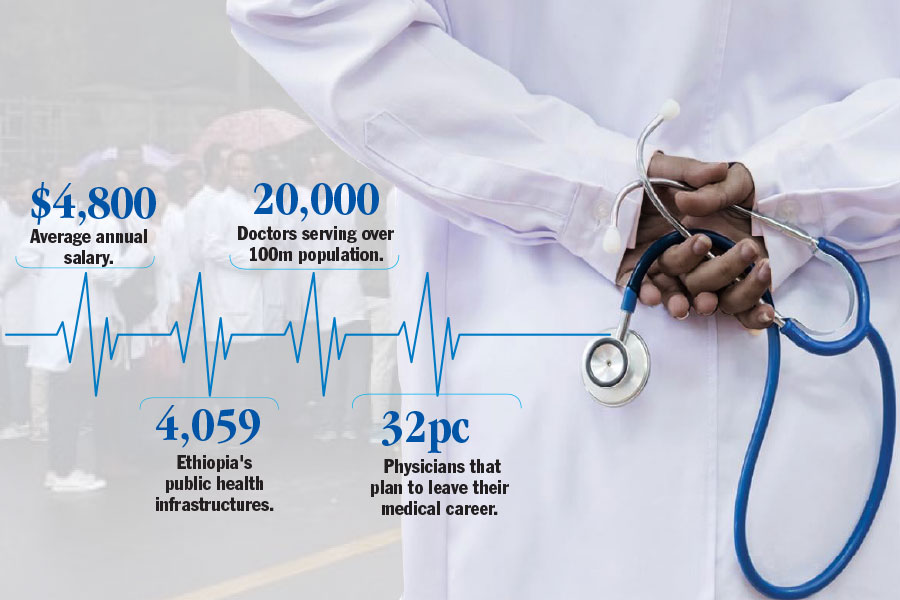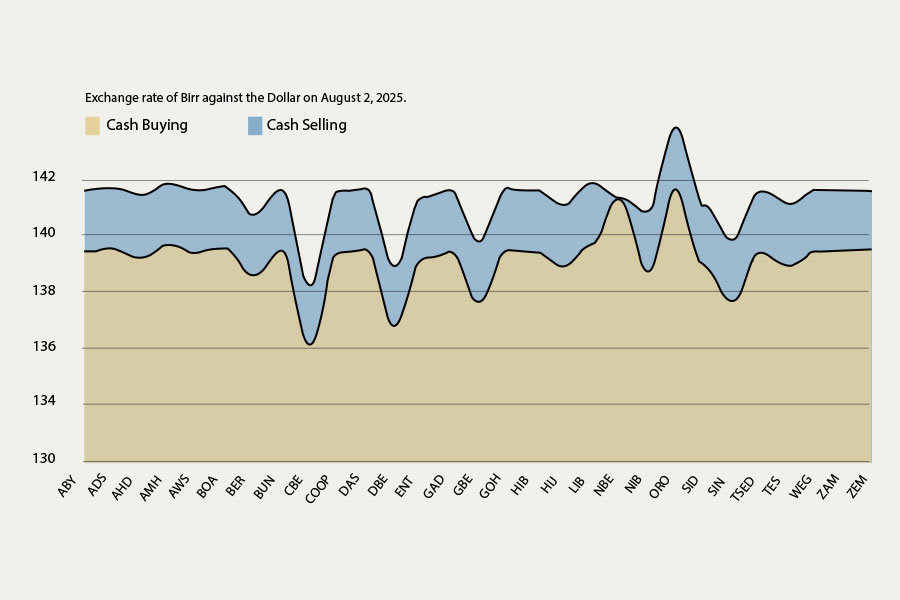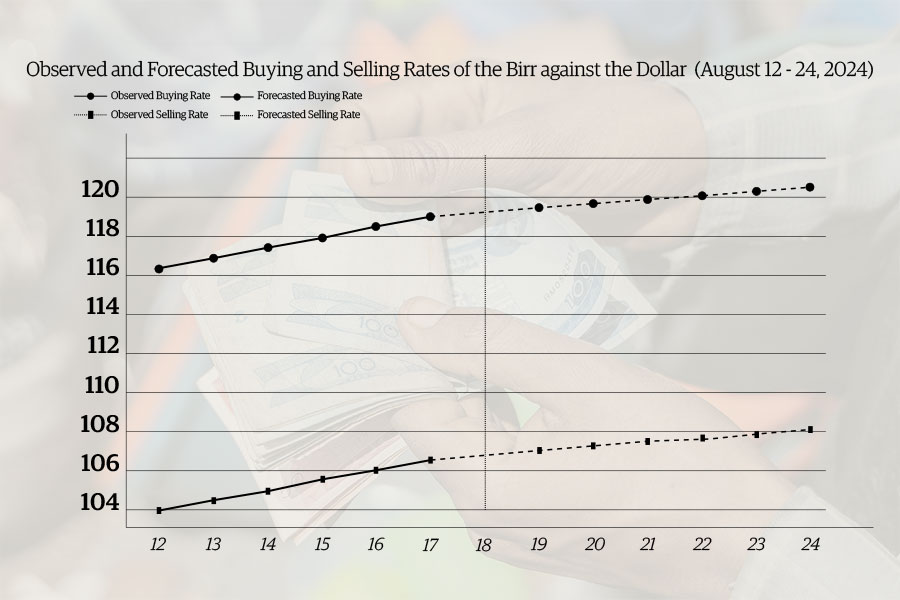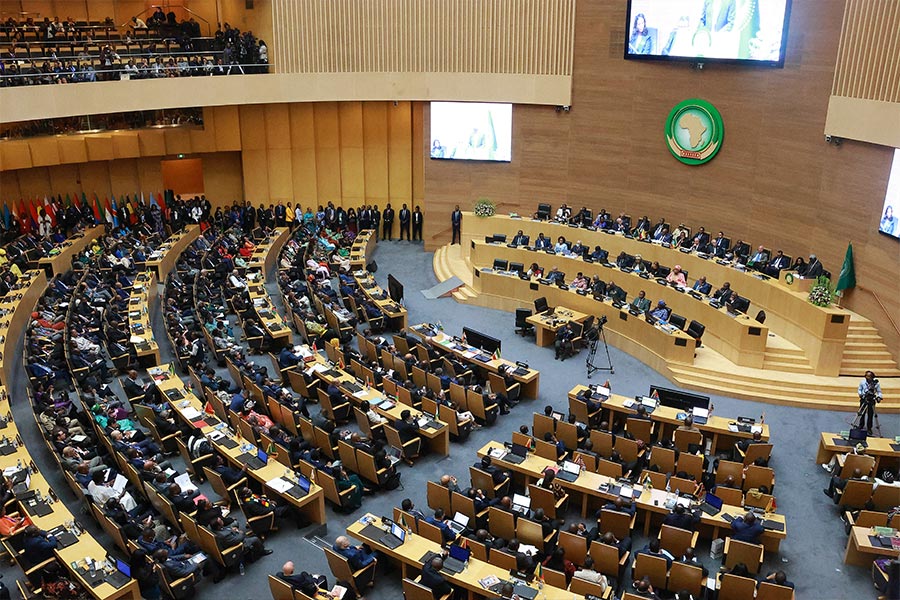
Fortune News | Jun 17,2023
Sara Markos was one of the Ethiopian migrants who had gone to Lebanon with hopes of changing her life.
She had toiled for 13 years until her palms formed a rough callous texture from washing too many dishes to the point that most digital scanners can not read her fingerprints.
The mistreatment got to its peak as Sara recalls having food sent to her from an Ethiopian neighbour upstairs using a rope through her bedroom window.
"I was given a single meal a day and one tea sachet for four days," Sara told Fortune.
The struggle continued upon her return when she discovered that her husband had remarried and used the remittance she sent to purchase real estate. Sara experienced a nervous breakdown where suicidal thoughts haunted her.
All that has passed.
Sara is now a deputy administrator at Egna Legna, a non-profit organisation that provides skills training for returning women from the Middle East. The mother of one feels to have found a purpose in her role at the foundation, helping others find a footing in their homeland.
The foundation was formed in Lebanon by 13 Ethiopian women under the leadership of Banchi Yimer in an effort to provide money and legal representation for women overseas. Egna Legna currently offers free hairdressing and sewing courses for 200 women.
"We just want our voices to be heard," Sara told Fortune while looking at the women coming to the sewing class.
Sara's story is a glimpse that echoes through the lives of 132,000 immigrants that found their way back home from the Middle East in the past two years.
An International Labour Organisation (ILO) study from 2017 shows that most Ethiopian migrant workers in Gulf countries (Saudi Arabia, Kuwait, the United Arab Emirates, Qatar, Bahrain, Oman) are engaged in forced labour, confiscation of passports, maltreatment and withheld payment of salary.
The situation exacerbates for women who are part of the Kafala sponsorship system, a custodial framework that administers employment modalities for migrant workers in the Gulf countries where a staggering 100pc in Oman, 81.8pc in Lebanon and 75.5pc in Kuwait are employed as housemaids.
While slight differences exist in implementation between countries, the system stipulates how long a worker must serve (usually two years) before switching employment or leaving the country and entitles the sponsor to powers over visa renewals and work permits.
It closes the doors for wage negotiations and causes workers a host of health problems. Meanwhile, debt bondage, confiscation of travel and identity documents, fear of deportation, or threat of denunciation to authorities undermine the migrants' ability to resist.
Last year's initiative to provide humanitarian medical care in Lebanon by Doctors Without Borders recorded 7,686 medical consultations where workers suffered from diabetes, hypertension, musculoskeletal, gastrointestinal, and respiratory diseases, the largest proportion of them being Ethiopian.
Women returnees training at Egna Legna non-profit organisation.
In an attempt to facilitate their return, the Ministry of Women Children & Social Affairs (MOWCSA) had partnered with several international organisations.
According to Communications Officer Dereje Taye, many of the returnees had migrated from regional states without a clear understanding of what to expect. A survey revealed that 74pc of these returnees did not have their expectations met, while 89pc of them advise others not to undertake the journey.
To resettle the stranded immigrants, Dereje indicated that the Ministry ensures that they reintegrate with society while revealing that repatriating migrants to other African countries is the next phase of the program.
Unemployment and poverty lie at the heart of this trend.
Following an agreement to send hundreds of thousands of "trained workers" from Ethiopia to Saudi Arabia between the ministries of Labor of the two countries, unknown job horizons burgeon for desperate youth while lush remittance earnings make their way.
With hopes of changing the narratives associated with traffickers and dangerous routes during migration, the federal government has actively undertaken recruitment and training of blue-collar labour exports.
In line with that, the Ministry of Labor & Skills has been giving training to tens of thousands of women headed for employment in Saudi Arabia over the past five months.
According to Mulu Keneni, deputy director of the Training & Institutional Capacity Desk, a 21-day course that entails housekeeping, cooking and basic technology literacy to nearly 70,000 prospective migrant women through 77 outlets across the country.
The trainees are awarded a Certificate of Conformance (CoC) upon completing the course which is passed on to recruiters with contacts in the Gulf. Whether the time or quality of training is enough to master the skills is debatable.
"We can't really attest to their competency," said Mulu.
Meanwhile, business is booming for agencies that are beneficiaries of the expanded demand for Ethiopian workers from Gulf countries. The area around the agency is teeming with prospective migrants, brokers who offer easy access to passports for hefty sums and security personnel clearing away unnecessary queues.
Seid Nejnima managed recruitment agencies for the past decade. He collects a commission fee of 900 dollars from each worker going abroad through Mambo Agency.
Upon receiving the COC certification provided by centres designated by the Ministry, Seid connects with offices in Saudi Arabia or Jordan to facilitate a visa and work permits. Agencies will be liable for any costs arising from the worker leaving their assigned post in under three months.
Seid argues that problems do not arise as long as workers maintain their end of the bargain, mentioning that most of the contracts presented to the prospective women are for a period of two and a half years.
However, Seid observes in desperation to make a finer living, some opt to abandon their posts and look for employment opportunities outside their visa horizons which leads to detention and suffering.
"The training should entail what contractual obligations mean," he told Fortune.
He stressed that the government's active involvement will recede illegal migration for women as the demand is mostly for housemaids. However, men are likely to continue using the illegal format.
In times of economic hardship, safety has become a foreign term to those who are focused on making ends meet by any means necessary. A report by the Migration Policy Organization indicates that 126,000 Ethiopian migrants entered Yemen in 2019 alone as the war torn nation serves as a transit for entry into Saudi Arabia.
Close to 750,000 Ethiopian migrant workers are found in Saudi Arabia, of which around 65pc are likely to have used illegal means to arrive in the country, according to a report by the United Nations Office for the Coordination of Humanitarian Affairs (OCHA).
Neither reports of death nor detention will deter the goals of women like Fozia Ahmed, who plans to start the 21-day class and be COC certified once she receives her passport.
She resides in Dessie, Amhara Regional States, and has been awaiting her passport at the Immigration Nationality & Vital Events Agency (INVEA) for the past six months. The whole endeavour is estimated to cost her 12,000 Br, which she plans to borrow from her sister, who has been working in Lebanon for the past three years.
Although Fozia has relatives that have suffered after taking similar routes, the mother of two opted to try her chance abroad, crushed by the scours of inflation and the trauma of a recent divorce.
"I'm strong enough to handle the pressure," she said, willing to put the rest up to the higher power while anticipating work for at least three years.
Fozia has learned from numerous relatives and friends who went to the Gulf and had their money squandered. Therefore, she plans to send her earnings directly to her mother.
While women like Fozia explore legal routes to the Middle East, thousands of Ethiopians continue to trek through the Libyan desert in the hopes of crossing the Mediterranean for decent living standards.
It is estimated that only 40pc of Ethiopian migrants move with legal documents.
Indeed, Amin Mohammed, 38, who returned to his home country six months ago is looking for ways to search for greener pastures in other countries.
Although he was not forthcoming about the reasons for his return, he hinted that it was a rather dramatic exit after a decade-long work in affluent middle eastern Qatar.
While he has purchased a Toyota Vitz vehicle with his savings, the 1,500 Br daily income from providing transport services could barely cover his expenses. He claims to have been accustomed to a better lifestyle where a decent meal was afforded at a fair price.
"I find it puzzling how people on the lower economic curve manage to get by," Amin told Fortune.
Amin is convinced that he would be an opulent man with better language skills and higher education. He believes that there is significant demand for the Ethiopian workforce in the Middle East, but underscores that some countries can be tough for migrants.
"It is a matter of chance and skill," he said.
Contrary to repatriation, an autonomous agency Ethiopian Diaspora Service under the Ministry of Foreign Affairs is entrusted to persuade Ethiopians living abroad to come back home and invest in the country.
Wondwosen Girma, communications director, implies that a little over three billion dollars have been collected in remittance within the last three quarters of the fiscal year while conceding that a significant portion of remittance earnings is lost in parallel exchange markets.
He believes that the Ethiopian diaspora could contribute more than a remittance to the country, pointing out the large donations to state-sponsored projects such as the Great Ethiopian Renaissance Dam (GERD) and Gebeta Le Hager came from overseas.
"We implore the diaspora to import capital, knowledge and skill," he told Fortune.
The formalisation of blue-collar labour exports to the Middle East is one of the tools at the disposal of the federal government to soothe the forex pangs through remittance, as Ethiopia's foreign currency shortage hit new strides with the country registering 307 million dollars in forex reserve outflow during the 2020/21 fiscal year.
However, experts astutely observed that remittance income received by households is often used for short-term consumption rather than long-term investment.
Tadele Ferede (PhD), former president of the Ethiopian Economics Association, views remittance income as much like tourism; extremely sensitive to political shocks while adding minuscule long-term value.
While he acknowledged that the new training modality is a step forward in improving the skills of migrant workers, he indicated that there are loopholes in the issuance of certifications and the costly absence of supportive representatives in destination countries.
He emphasised that remittance is a temporary solution rather than a sustainable economic strategy.
"It's a pain killer, not a cure," he told Fortune.
Tadele, who based his observations on industrial parks, pointed out that even the packaging materials for products are imported, which he equivocates to exporting job opportunities.
He argues the focus should be enhancing the amount, quality, and consistency of production with strategic prioritisation in agriculture, manufacturing, and investment to generate foreign currency.
Over the last few decades, migration from Ethiopia has increased significantly.
Between 1941 and 1974, the number of migrants remained around 20,000. However, recent indications such as the high price of passports, which can fetch up to 100,000 Br through brokers, suggest that there is now a much greater interest.
PUBLISHED ON
Jul 29,2023 [ VOL
24 , NO
1213]

Fortune News | Jun 17,2023

Agenda |

Fortune News | Sep 23,2023

Editorial | Aug 29,2020

Money Market Watch | Aug 17,2025

Fortune News | May 06,2023

Fortune News | Nov 03,2024

Fortune News | Sep 22,2024

Money Market Watch | Aug 18,2024

View From Arada | Feb 24,2024

Dec 22 , 2024 . By TIZITA SHEWAFERAW
Charged with transforming colossal state-owned enterprises into modern and competitiv...

Aug 18 , 2024 . By AKSAH ITALO
Although predictable Yonas Zerihun's job in the ride-hailing service is not immune to...

Jul 28 , 2024 . By TIZITA SHEWAFERAW
Unhabitual, perhaps too many, Samuel Gebreyohannes, 38, used to occasionally enjoy a couple of beers at breakfast. However, he recently swit...

Jul 13 , 2024 . By AKSAH ITALO
Investors who rely on tractors, trucks, and field vehicles for commuting, transporting commodities, and f...

Oct 18 , 2025
The political establishment, notably the ruling party and its top brass, has become p...

Oct 11 , 2025
Ladislas Farago, a roving Associated Press (AP) correspondent, arrived in Ethiopia in...

Oct 4 , 2025
Eyob Tekalegn (PhD) had been in the Governor's chair for only weeks when, on Septembe...

Sep 27 , 2025
Four years into an experiment with “shock therapy” in education, the national moo...